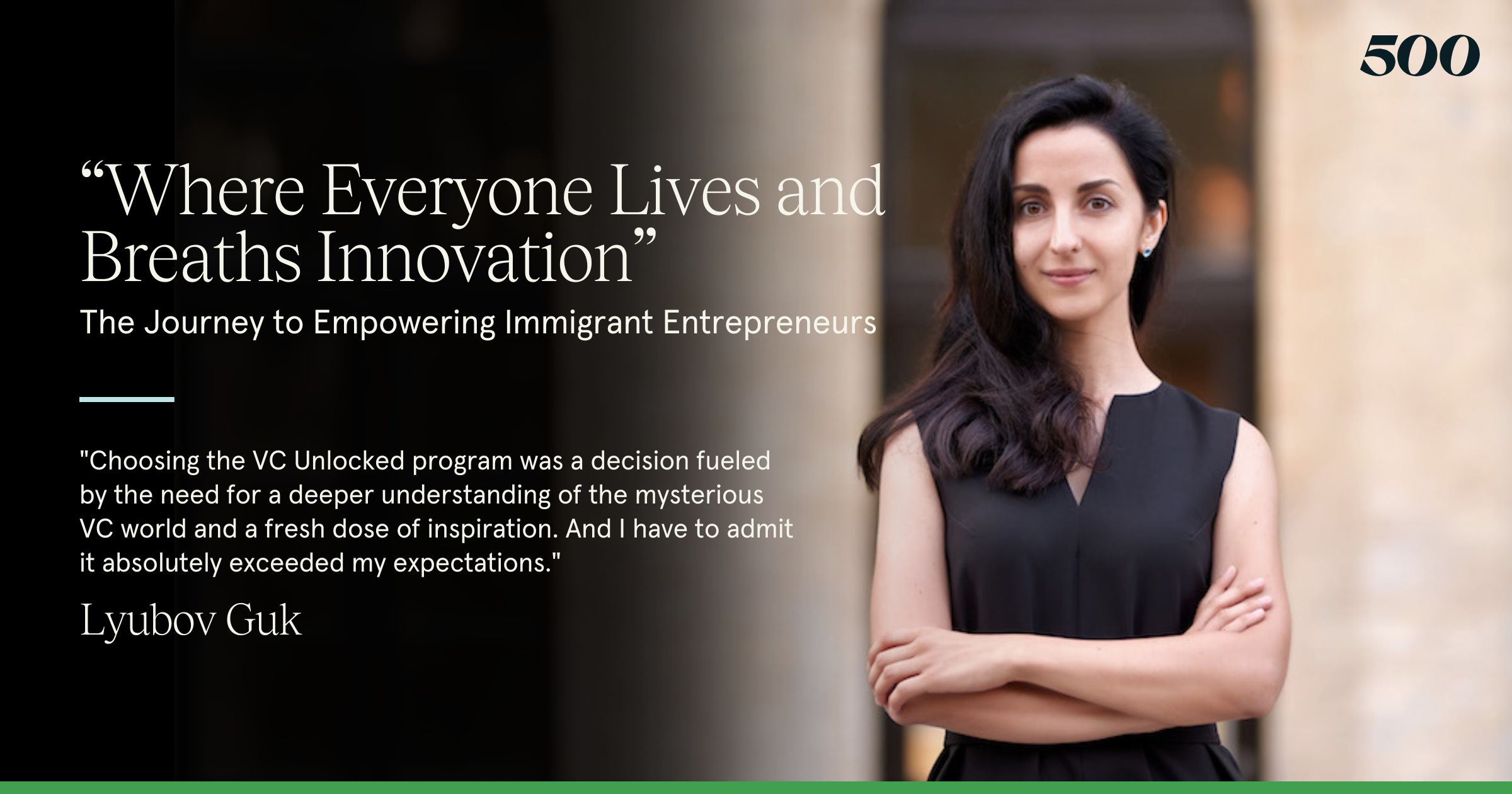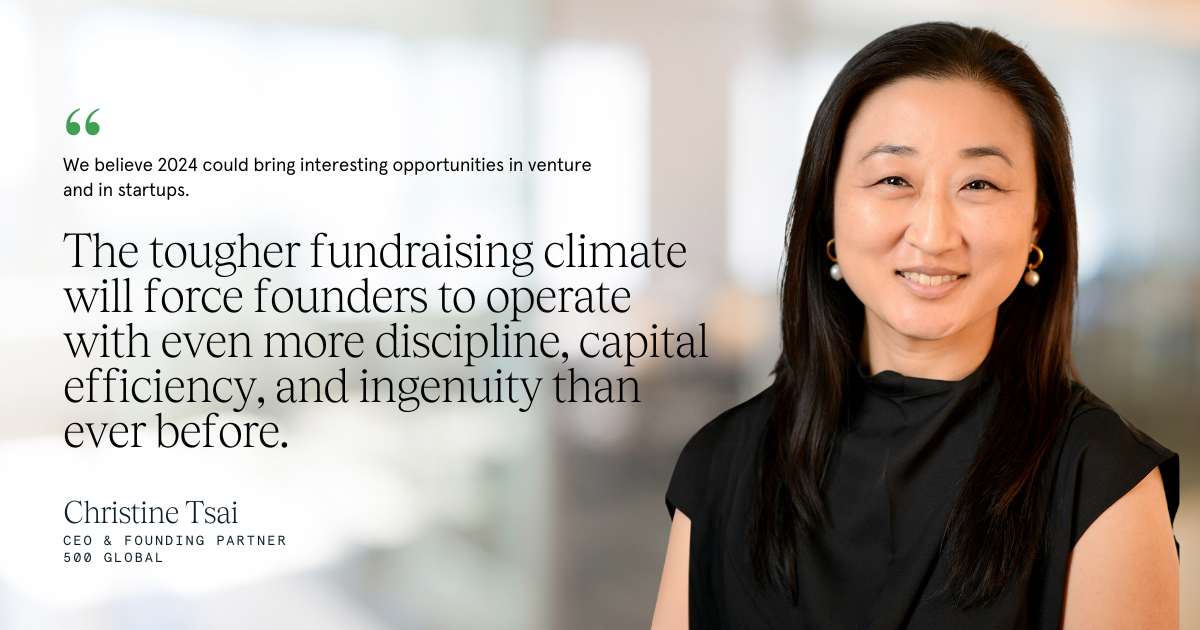500 Startups kicked off a new series called Innovation Coffee Breaks. Experts from leading companies, venture capital firms and startups join us every week to discuss how to innovate during this time of uncertainty.
We caught up with Alex Lazarow, the investment director of Cathay Innovation, a global fund affiliated with Cathay Capital. Lazarow also teaches entrepreneurship at the Middlebury Institute for International Studies and is out with a new book called “Out-Innovate: How Global Entrepreneurs from Delhi to Detroit are Rewriting the Rules of Silicon Valley.”
He believes that the best entrepreneurs in Chicago, Amsterdam or Bangalore have more in common with the best entrepreneurs in São Paulo than they do with those in San Francisco, but no one is telling their stories. For his book, he interviewed nearly 200 entrepreneurs who are leading some of the hottest companies around the world, primarily outside of Silicon Valley.
Vijay Rajendran: What kind of founders will be successful in a post-COVID-19 environment? Your book suggests that blitz-scaling doesn’t work in other parts of the world and unicorns should be replaced with what you describe as “camels.” Can you explain why camels and why they may be desirable?
Alex Lazarow: In the Valley, if the philosophy is to chase unicorns, it translates to an approach of growth at all costs. The context has changed a little bit in the last two months, but around the world the context is different. There’s less capital, there’s less depth of trained startup human capital. Often it’s an ecosystem that is more susceptible to macroeconomic shocks, particularly in emerging markets. I chose the camel because it’s a real animal. It doesn’t live in fictitious science. It can sprint when it needs, but it can survive the world’s harshest environments.
Entrepreneurs outside the Valley are infusing the business with sustainability and resilience from day one. It is about thinking very carefully about unit economics and making sure you’re not subsidizing acquisition.You’re charging for the value you create. Second is managing costs and managing burn, and third is taking a long-term view. The lessons won’t be from the ecosystem that has thrived in a context of abundance.
Vijay Rajendran: To build that kind of sustainable early venture, do you need to focus on a hyper-local market or can you still have global aspirations from day one?
Alex Lazarow: The constraints that entrepreneurs operate in are often turned into advantages. They are starting their business in a smaller market. 500 Startups knows this firsthand with its funds around the world in many emerging markets. If the local market is smaller, it means that the opportunity must be much bigger by becoming global. It challenges entrepreneurs to build a culture, an organization and a product that can scale across borders. That’s a powerful skill set.
Vijay Rajendran: To build that kind of organization, you’re also now trying to do that in a current state, but probably in a future state that involves remote work and distributed teams. Does that accelerate or decelerate the kinds of companies that you’ll need to see camels?
Alex Lazarow: [COVID-19] will be a catalyst for it. My Twitter feed is exploding with everyone showing me their fancy Zoom rigs in the Valley, but building distributed teams has often been par for the course for many startups outside of the Valley since the get go. Now we can learn from their best practice around doing this successfully.
Vijay Rajendran: We definitely have much to learn in the Valley; it isn’t the sole source of all expertise.
Alex Lazarow: What is happening today is learning in bi-directions. Take ride-sharing. Uber and Lyft pioneered the model [and] we saw that model get replicated all over the world. It got adapted in [different] ways. Think of Indonesia’s Gojek. It got adapted to ride sharing on ojeks, little motorcycle taxis. The CEO, Nadiem Makarim, thought about drivers as an ecosystem–driving people to work, delivering food, offering mobile money.
Vijay Rajendran: I couldn’t agree more, particularly if you consider how other societies are leapfrogging many of the legacies that we have here.
Alex Lazarow: If you think about it, the world leader in mobile banking is probably in Kenya. One of the biggest digital banks is in Brazil, Nubank. Some of the leaders on super apps are in China. India is now inspiring a lot of new models that are getting replicated.
Vijay Rajendran: To build that, it means that startups have to build either the full stack or bigger stack than maybe we would be accustomed to in the U.S. or many other markets like the Valley. What does it mean to have to build the full stack rather than just the micro services or the application layer?
Alex Lazarow: In the book, I talk about GuiaBolso, which is trying to build the Mint.com of Brazil. For Mint.com, we have Yodlee and Plaid for the bank interconnection layer. That didn’t exist in Brazil, so the first thing they had to do is build that. Flipkart (India) wasn’t just an e-commerce player. It had to do cash on collection, cash on delivery, logistics and a whole range of other services. Amazon has built this already, but didn’t have to build it from day one. We’re seeing a lot of startups build not just the one product, but an ecosystem around it to fill institutional voids.
Vijay Rajendran: Incumbents more likely write off the startups as insignificant. Are there any cautionary tales? Is there something that leaders in big companies and institutions can take away from this?
Alex Lazarow: Think of Tencent and Alibaba, which are not only investing in startups, but through the WeChat ecosystem or through Alipay are actually helping them scale. How can corporates think about that model and infuse some of their businesses with that? There’s obviously this threat narrative, but there’s a big opportunity narrative as well to reinvent and reinvigorate businesses.
Vijay Rajendran: In the context of what is happening around the world, are there also some good alternatives to venture capital? And do you have any predictions of how funding companies will be different in the future?
Alex Lazarow: The venture capital model emanated from the whaling industry. One of the reasons it’s called carried interest is because it used to be literally what you carried off the boat. That model has worked extraordinarily well for a particular context and for a particular type of startup. Today there are 480 startup ecosystems around the world. There are going to be different models and as a result, there will be different ways to support those entrepreneurs.
I’ll give you three areas that are interesting. The first is reinventing this whaling model with something else. Another industry would have been the mining industry, which also funds high-risk ventures and if you adapt that model, you might get a revenue share, which is like a royalty. We’re seeing some funds getting built like that and startups getting built to do that.
The second is thinking about the structure of the fund. The 2 and 20,10-year fund works well, but are there ways that you can take a longer term view? Naspers made arguably the most successful venture investment in history when they invested in Tencent and held it for two decades.
Third, are there other tools to invest and assess companies? I’m taking all these meetings with entrepreneurs from all over the world and Zoom is an incredible leveler. It doesn’t matter if you’re in San Francisco or in North Dakota. One [tool] that is exciting is computerized decision making, where you can ingest a lot of information and make an impartial decision. This will become increasingly important, giving voice and increasing diversity in the venture industry.
Vijay Rajendran is Director of Innovation and Partnerships at 500 Startups.
This interview has been edited for brevity and clarity.
This post is intended solely for general informational or educational purposes only. 500 Startups Management Company, L.L.C. and its affiliates (collectively “500 Startups”) makes no representation as to the accuracy or information in this post and while reasonable steps have been taken to ensure that the information herein is accurate and up-to-date, no liability can be accepted for any error or omissions. All third party links in this post have not been independently verified by 500 Startups and the inclusion of such links should not be interpreted as an endorsement or confirmation of the content within. Under no circumstances should any content in this post be construed as investment, legal, tax or accounting advice by 500 Startups, or an offer to sell or solicitation of interest to purchase any securities advised by 500 Startups. Prospective investors considering an investment into any 500 Startups fund should not consider or construe this content as fund marketing material. All views and opinions presented by guest speakers are the views and opinions of the relevant guest speaker and do not represent those of 500 Startups or any of its affiliates or representatives.




